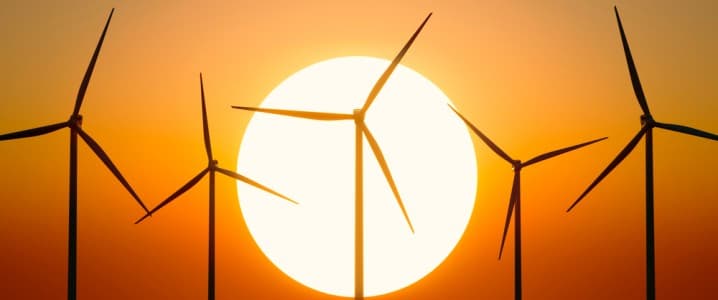Germany saw the highest number of onshore wind turbines commissioned in the first half of 2025 for eight years, but the rebound in installations is still off track to reach the official targets, the German wind energy association, Bundesverband WindEnergie (BWE), said on Tuesday.
As many as 409 new turbines of a total of 2.2 gigawatts (GW) started up between January and June, up by 67% from a year earlier, according to BWE’s data.
A total of 7.8 GW of new wind energy capacity was approved during the first half of 2025. That’s a record-high for approved capacity for the first half of any year and up by 55% compared to the first half of 2024.
Moreover, approval times declined, in a sign that recent reforms are working and Germany is accelerating onshore wind capacity installations again.
The time for approval has been slashed by more than 20% from last year to an average of 18 months, according to data from industry organizations, BWE said.
“Wind energy is getting back on track,” BWE president Bärbel Heidebroek said in a statement, adding that 7.5 GW projects were awarded in two tenders so far this year.
Despite the jump in wind power installations, Germany still has a gap between the rate of capacity expansion and the legally mandated goals in the Renewable Energy Sources Act, the so-called EEG, Heidebroek noted.
The targets in the Act will not be achievable until 2026 at the earliest, the wind industry association said.
Germany has a target to install 10 GW of wind power capacity every year to have renewables account for 80% of its electricity generation in 2030.
BWE called for continued simplification in project approvals and noted the urgent need of modernization of the grid to handle the rise in renewable electricity.
In solar, Germany is halfway through reaching its 2030 solar power targets, the German Solar Industry Association (BSW-Solar), said earlier this month.
The association, however, warned that solar power expansion has slowed and while Germany is halfway there on its solar goals, the next stage to reaching the 2030 targets cannot be taken for granted.
By Tsvetana Paraskova for Oilprice.com
More Top Reads From Oilprice.com:

